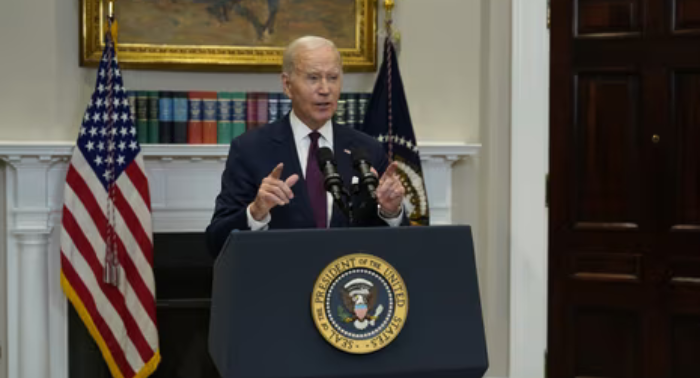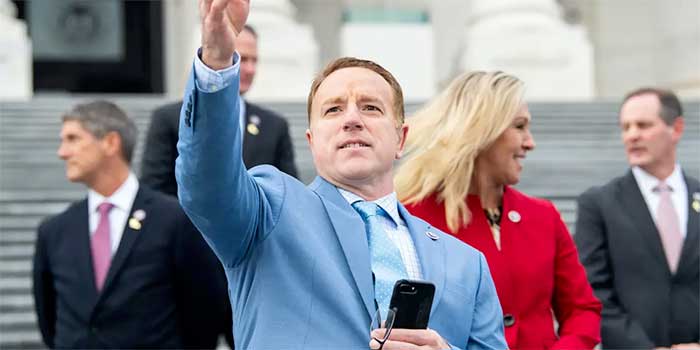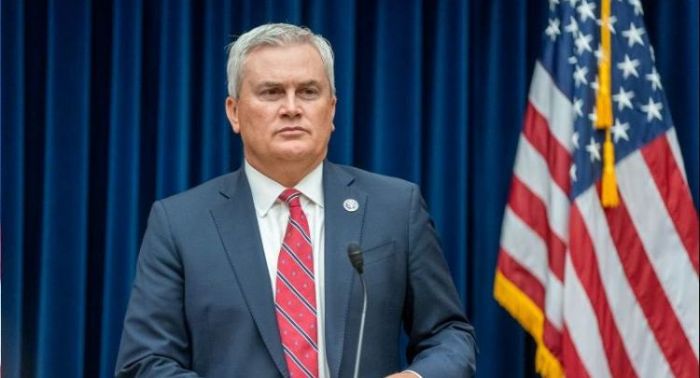On Tuesday, the U.S. House passed an interim measure to prevent a government shutdown as current funding nears its end. This move significantly lessens the likelihood of a shutdown, which could have left federal employees unpaid during Thanksgiving and hindered Congress’s ability to respond to critical situations in Ukraine and Israel.
Amidst considerable internal discord in the U.S. Capitol, neither the Senate, led by Democrats, nor the Republican-controlled House, managed to pass budgets for federal departments before the Friday midnight deadline.
The House passed legislation that effectively delays the budget issue until January 2024, a crucial election year. To pass this bill, the Republican majority had to seek assistance from Democrats due to resistance from some conservative members unhappy with this temporary solution.
This temporary measure, known as a “laddered continuing resolution,” is now headed to the Senate, where it is anticipated to face fewer obstacles. This provides legislators additional time to engage in a comprehensive discussion about funding the government for the entire fiscal year.
The potential shutdown’s impact has been a concern for weeks among Congressional strategists and the White House. If it were to occur, it would mean a significant slowdown of the world’s largest economy starting Saturday, affecting up to 1.5 million public sector employees who would be furloughed just before Thanksgiving.
In the event of a shutdown, most federal amenities, including prominent national parks like Yosemite, Yellowstone, and the Everglades, would be closed. Additionally, the air traffic control system might face limitations, potentially disrupting travel plans for Thanksgiving.
Despite lacking the policy goals and significant spending reductions sought by the Republican right wing, the stop-gap bill passed in the House with the support of Democrats, counterbalancing over 90 dissenting votes from conservative members.
Democratic House Minority Leader Hakeem Jeffries expressed support for the bill, stating it meets the criteria of maintaining fiscal year 2023 spending levels, avoiding harmful cuts, and excluding far-right policy provisions.
Budget votes in Congress often lead to standoffs, with parties using the threat of a shutdown to negotiate concessions, typically without much success.
This vote represented a significant challenge for new House Speaker Mike Johnson’s leadership. Johnson assumed the role after a historic revolt led by allies of former President Donald Trump against his predecessor, Kevin McCarthy, in October.
The turmoil left the House in a state of inactivity for three weeks, complicating responses to the Hamas attack on Israel and the conflict in Ukraine.
Johnson, who has been in his position for less than three weeks, acknowledged the challenges he faces in changing the course of government operations. His plan postpones funding deadlines to different months for various government sectors.
Democrats sought to include additional provisions for aid to Israel, Ukraine, and Taiwan, but these are now likely to be addressed separately. A notable example is the White House’s $61 billion aid request for Ukraine, which faces uncertainty due to conservative opposition.
Johnson’s strategy benefited from a general desire to resolve the recent disorder and the approaching holiday season.




